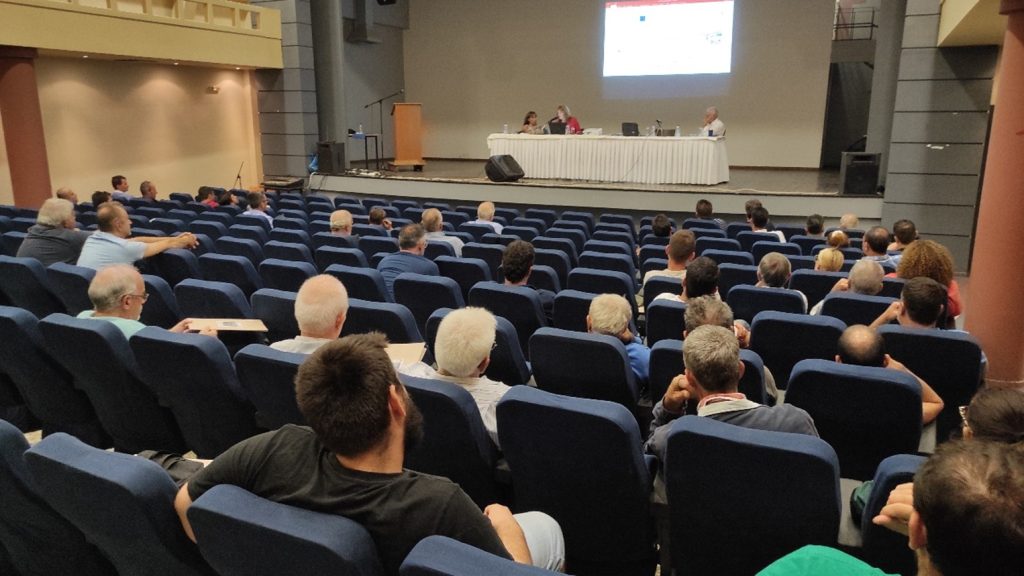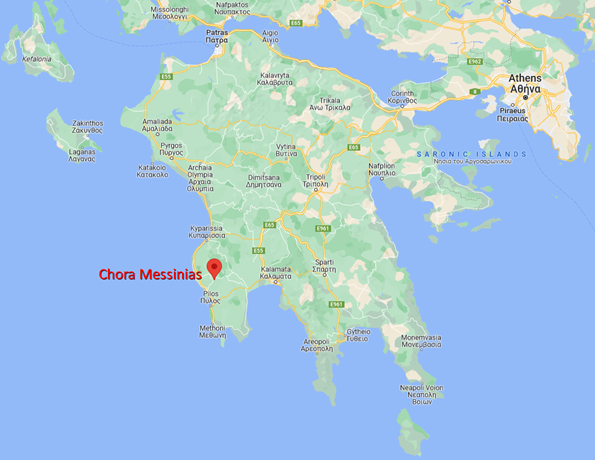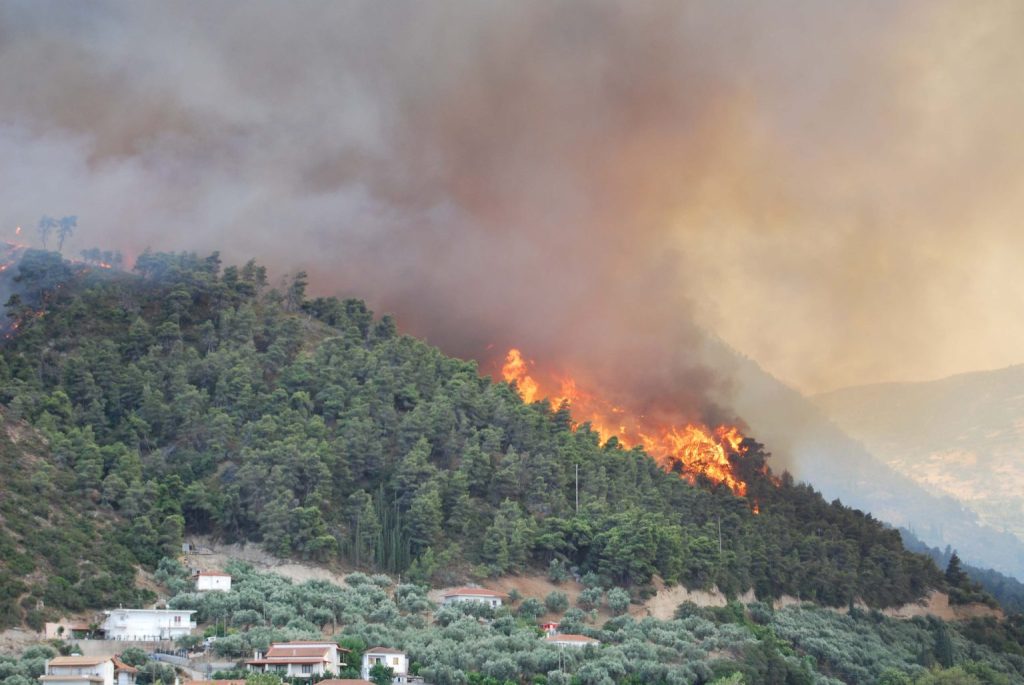
The first of the five LandLabs planned by the ResAlliance project across the Mediterranean was launched successfully on 28 September 2023, in the region of Peloponnese, Greece. The first activity was a workshop that was organised at the municipality of Chora, in the prefecture of Messinia, entitled “Creating resilient landscapes in the Mediterranean to address the impacts of climate change: Fires – Drought – Floods”.
The event was organised by the team of the Hellenic Agricultural Organisation DIMITRA (ELGO DIMITRA), in cooperation with the Cooperative of Olive Growers NILEAS. It brought together 55 stakeholders from the agriculture and forestry sectors, with the participation of officers from public agencies such as the Fire Service and the Forest Service. Informative material concerning the ResAlliance project, its objectives, its LandNet network, and the LandLabs it organises was distributed to the participants upon registration and was followed by presentations explaining the relevant details.
Facilitated by the ResAlliance Ambassador Dr Evangelia Avramidou, the session sparked a lively dialogue that offered valuable insights into local community challenges, identified existing knowledge gaps, recognised some good management practises, discussed funding opportunities, and pointed to issues and concerns related to the creation of resilient landscapes. Additionally, stakeholders expressed keen interest in further details about the project and in registering to the LandNet.

Discussions and concerns of the Greek’s ResAlliance LandLab
A detailed list of points made during the discussion was noted and will be included in an internal project report, to be compared with the opinions and proposals that will be collected from further workshops that will be carried out in Peloponnese and from the other ResAlliance LandLabs across the Mediterranean. Some of the most important ones had to do with the possibility for farmers to contribute to the protection of their land from the increased risk of fire and other threats due to climate change, both at the prevention phase and during suppression.
As an example, the NILEAS group explained that from the early stages of their establishment in the 2000s, they developed a plan on how to react in case of a forest fire in their area. Among the things they did was work to maximise the use of the water wells in their fields. In the extreme fire year of 2007, after facing an initial fire on 20 June, they updated their plan and maximised alert. They were able to contribute greatly, with their own resources, to the suppression of a second fire on August 20, at a time when fire danger had become extreme. Since then, they have improved and mapped the network of hydrants in their area. However, realising that the situation is getting worse because of climate change, with the Peloponnese being a hot spot, they want to have stronger and more official participation in protecting their land. They requested that farmers who are members of cooperatives should be trained certified and insured as volunteers, in order to contribute actively to fire prevention and suppression in their area.
Farmers also complained about the bureaucratic obstacles they face in managing their land, citing problems with ownership and with land use (areas considered as forest lands by the state). These result from the lack of a land cadaster in Greece (which is currently under development) and put-off farmers from investing in managing their lands, as their efforts are financially marginal. They consider these to be problems that need to be solved in order to allow them to keep living in the countryside and continue with their agricultural activities.

Supporting local communities strengthens landscape resilience
Additionally, a number of good practises were reported indicating how specific farmers treated their orchards (e.g. a pomegranate production farm) to keep them resilient to incoming fires while at the same time maintaining the soil and securing water for their crop (e.g. timing of clearing shrubs, and cutting grasses in order to maintain green grass under the trees in the summer, making sure that there is good soil protection at any time, channelling and storing water to feed hydrants and to irrigate, etc.).
Overall, it was emphasised that the rural population needs to be supported not only regarding finances but also through positive policies. Legislation is often created by people in Parliament who have little understanding of the realities of forestry and farming. Farmers need training and support. The Forest Service (which is currently in a poor state in Greece with dwindling and ageing personnel) needs to be strengthened and mandated to play a positive role in this regard.
In conclusion, the launch of the LandLab in Peloponnese was successful. It gave stakeholders of the local community the opportunity to get acquainted with the concept of landscape resilience, to recognise their role in that, and to discuss and propose how things can be done better. Furthermore, the LandNet of ResAlliance was also promoted, with many stakeholders joining after the workshop. The next step, the LandLab “exploratory workshop” is already under preparation by the ELGO DIMITRA team. It will soon be announced and will cover sectors of wine production, agriculture, forestry, apiculture, and governance.
Visit ResAlliance’s official website
This article was originally written by:
The Hellenic Agricultural Organisation DIMITRA (ELGO DIMITRA)
The post Stakeholders’ perceptions on building resilient landscapes: launching the LandLab in Peloponnese appeared first on Resilience Blog.